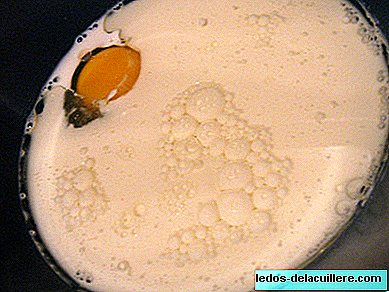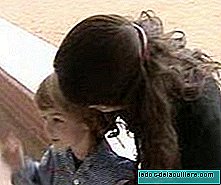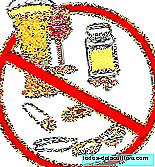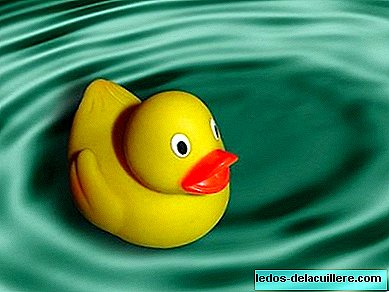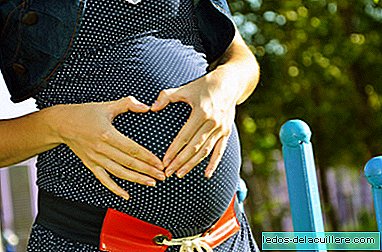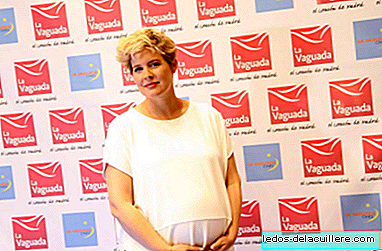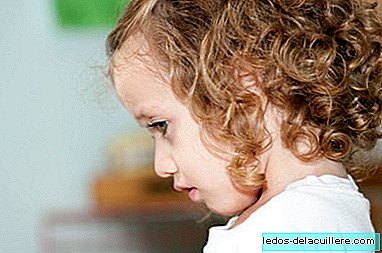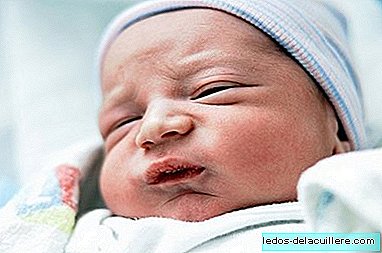
Babies are born sterile. This affirmation is the beginning of something that will happen to him as soon as he is born, which is nothing more than to be contaminated with everything that surrounds him.
That said it sounds pretty bad: getting contaminated, so perhaps we should change that verb to colonize, since it is what the baby's body does at birth, begin to colonize with the microorganisms that come into contact with it and, little by little, its The digestive system creates the so-called intestinal flora, which will help, among other things, defend against some external aggressions (good bacteria, they are called colloquially).
The fact is that not all babies are colonized by the same microorganisms, since the differences appear according to the way of birth (by caesarean section or vaginal route), as it is fed (with breast or artificial milk), according to the weeks of pregnancy, etc.
Within all these variables it has been observed that the best thing that can happen to a newborn is to get contaminated from his mother, that is, the more you touch your mother at birth and the less you touch other things, the better for him.
What does the scientific evidence say about it?
A study dating back to 1999 in which faecal samples from 64 healthy children who were born vaginally or by caesarean section were analyzed yielded the following results:
Children born by caesarean section were colonized later than children born vaginally. The feces of babies born vaginally had Bifidobacteria Y Lactobacilli (they form the natural flora of the digestive tract) at 10 days of age, while the stool of those born by caesarean section showed no remains of these bacteria until the month of life.
In addition, those born by caesarean section were colonized less by bacteria of the Bacteroides fragilis type, which is part of the normal flora of the large intestine, than those born vaginally (at 6 months the rates were 36% and 76%, respectively) . That is to say, even at 6 months, the intestinal flora of babies is different depending on whether they were born in one way or another.
Despite all this, during the 6 months of age the children were controlled there were no differences regarding gastrointestinal infections (It would have been nice to know what happened next).

Another study carried out in the Netherlands in 2006 also analyzed the fecal samples of babies, in this case 1,032 children, analyzing the bacteria they contained in comparison to the type of delivery they had and also other factors such as feeding or The place where they were born.
The samples were taken when the babies were one month old and the results obtained were as follows:
Babies born by caesarean section had a lower number of Bifidobacteria Y Bacteroideswhile they were more often colonized by Clostridium difficile, a bacterium that is usually in the digestive system of people who usually spend a lot of time in hospitals, or who have been treated with antibiotics, taking advantage of this situation, compared to babies born vaginally.
With regard to the type of feeding the babies took, those who were fed exclusively formula milk were colonized more frequently by Escherichia coli, a bacterium that can become quite dangerous because it causes many infections, Clostridium difficile, although they also seemed to have more Bacteroides Y Lactobacilli than babies who drank breast milk.
If the babies were hospitalized or were premature they had a higher prevalence and amount of C. difficile and if the children had older siblings they had a slightly higher number of Bifidobacteria than those who had no brothers.
As conclusions to the study the authors expressed that term infants born vaginally, at home (without the possibility of colonizing by microorganisms of a hospital), and who were exclusively breastfed they were the ones that seemed to have the best intestinal microbiota, for having a greater number of Bifidobacteria and a smaller amount of C. difficile Y E. coli.
Summarizing
There is a phrase that sums it up: Babies are born prepared to be colonized by their mother's microorganisms, which her body already knows because she has been with her for 9 monthsHowever, he is not prepared to colonize with microorganisms in a delivery room or by people other than the mother.
Luckily for all babies, more and more children are born vaginally, more and more children pass from the uterus to the mother's breast directly, less and less enemas are put to the moms (and the baby can also be contaminated from the microorganisms of the your mother's stool) and more and more babies drink breast milk.
Photos | A4gpa, Storyvillegirl on Flickr On Babies and more | The way of birth determines the first bacteria that the baby harbors. Would you choose to give birth by caesarean section if you could?




